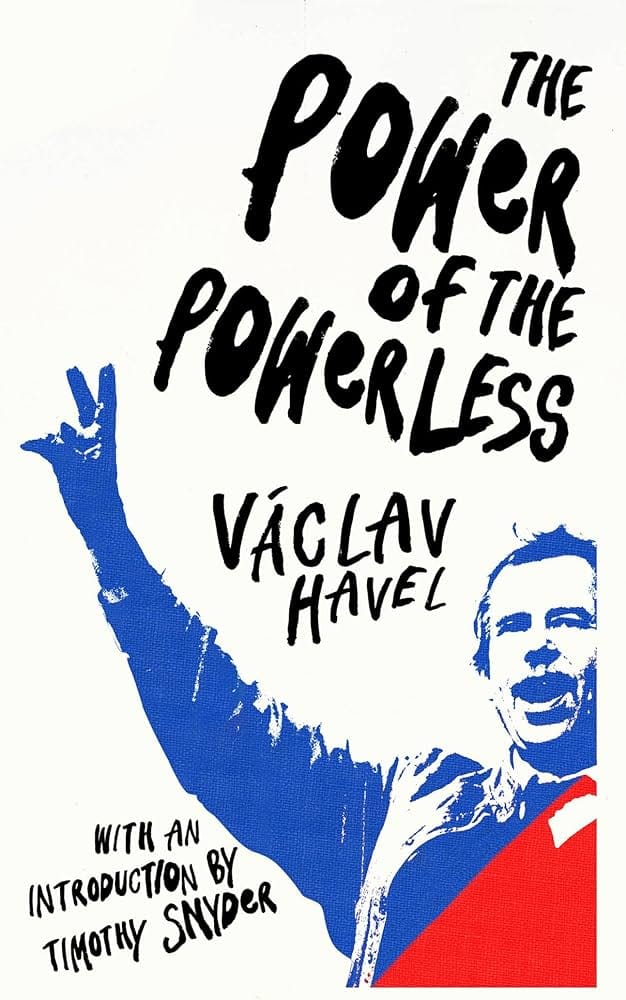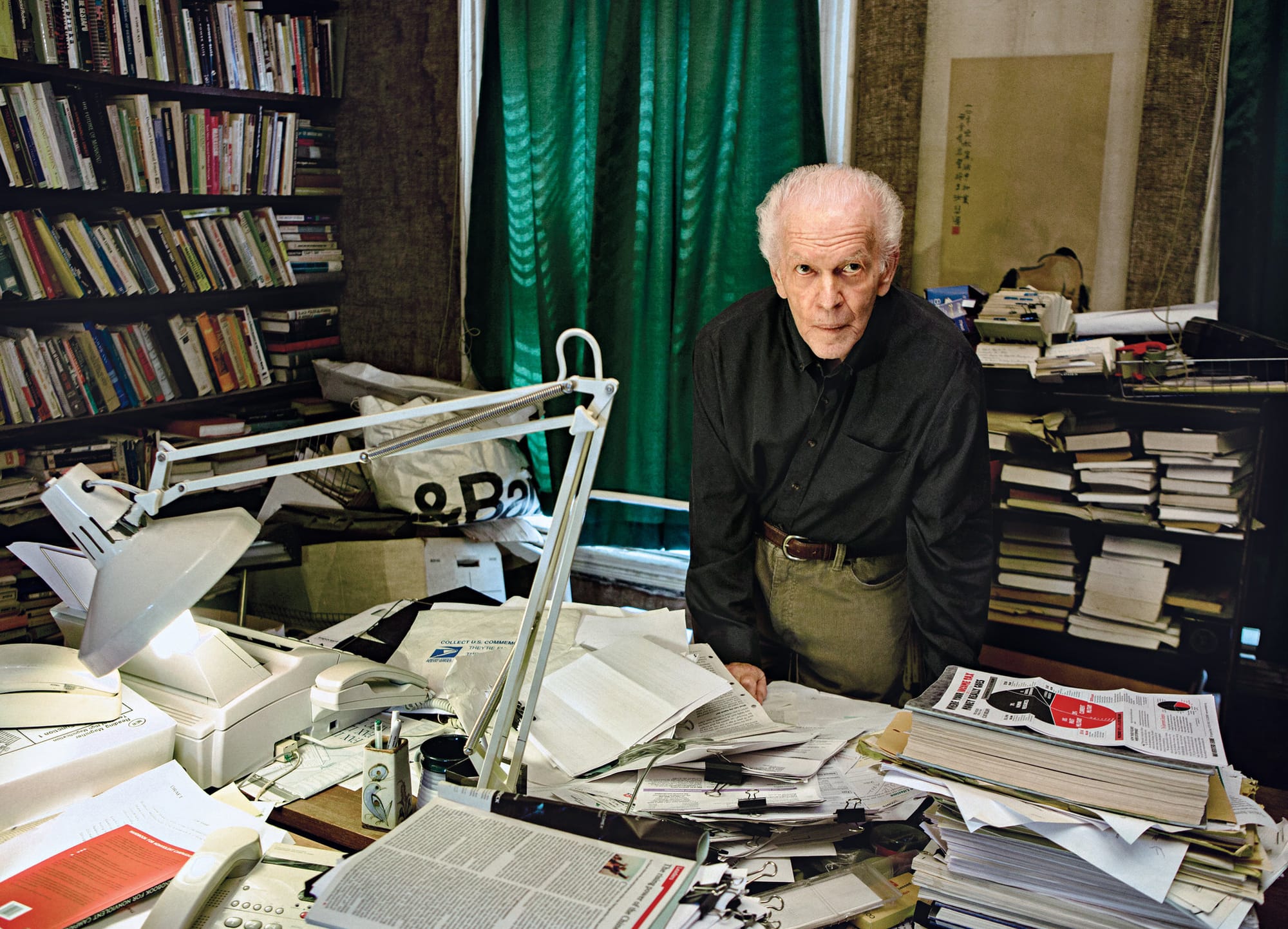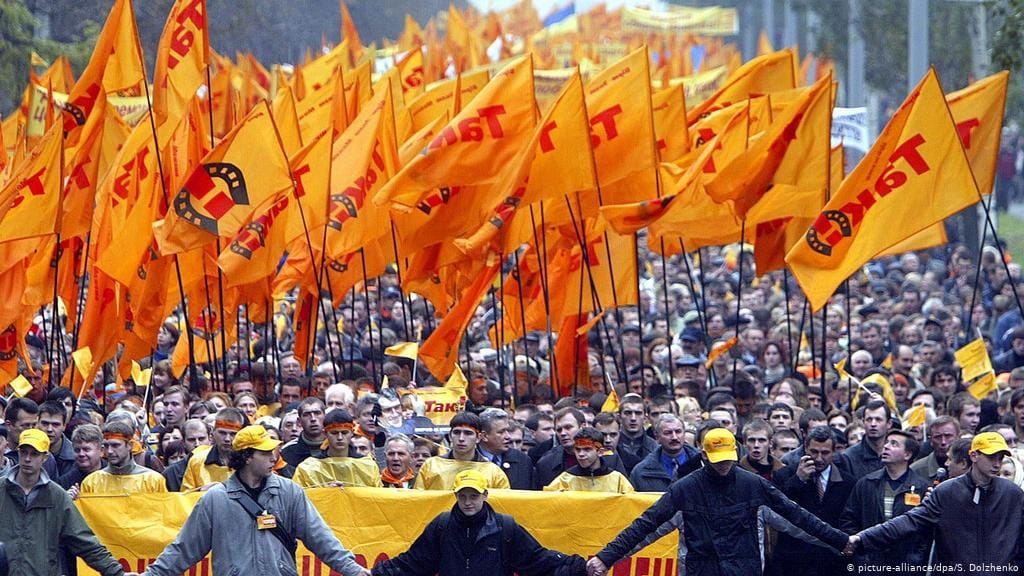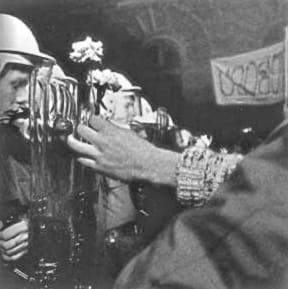
✊ The greengrocer's revolution
Nothing has done more to create human progress than democracy. There is nothing more important than achieving a fully democratic world as quickly as possible. Then even a grocer can make a difference.
Share this story!
Today marks the beginning of the Copenhagen Democracy Summit, organized annually by the Alliance of Democracies. I have attended every year since its inception in 2018 and am present this year as well.
Democracy is the foremost force for progress that we humans have invented. The faster all people can live in democracy, the sooner we will solve humanity's greatest remaining problems. In that spirit, I write today about the power of the powerless.
/Mathias
The greengrocer living a lie
There is no law that requires it, but a greengrocer in the communist dictatorship of Czechoslovakia places a sign in his shop window. It reads: "Workers of the world, unite!" Does this mean he is a convinced communist who supports the dictatorship?
No. Why does he do it then?
No one has demanded that he put up the sign, yet he does. Because he lives a lie. Everyone lives a lie, including those who created the lie.
"Because the regime is captive to its own lies, it must falsify everything. It falsifies the past. It falsifies the present, and it falsifies the future. It falsifies statistics. It pretends not to possess an omnipotent and unprincipled police apparatus. It pretends to respect human rights. It pretends to persecute no one. It pretends to fear nothing. It pretends to pretend nothing."
This is written by Czech playwright Václav Havel in The Power of the Powerless, a political essay he wrote in 1978.

By having this slogan from The Communist Manifesto in his shop window, the grocer avoids being questioned. He avoids unnecessary attention and gets to live his life in peace. But even though the action is so small and insignificant, it contributes to the lie. Along with thousands of other small, equally insignificant actions, the lie-based system is maintained.
Václav Havel continues:
"Individuals need not believe all these mystifications, but they must behave as though they did, or they must at least tolerate them in silence, or get along well with those who work with them. For this reason, however, they must live within a lie. They need not accept the lie. It is enough for them to have accepted their life with it and in it. For by this very fact, individuals confirm the system, fulfill the system, make the system, are the system."
The emperor has no clothes
If the grocer were to take down the sign, or never put it up in the first place, he would reveal the lie. He would then live in the truth.
Truth is very dangerous for a system built on lies.
For this, he will be punished. Not by people more convinced than the grocer, but who still live in the lie.
But the most important thing about the action of taking down the sign is that someone shouts "the emperor has no clothes!" This makes others see the lie and inspires them to stop living in it themselves.
Color revolutions
Gene Sharp saw how Mahatma Gandhi and Martin Luther King successfully led non-violent movements and devoted his life to studying such revolutions. Over decades of research, he produced several books, but also a list of 198 Methods of Nonviolent Actions.
Method number 18 reads: Displays of flags and symbolic colors.

This has been widely used in several revolutions. The Orange Revolution in Ukraine, the Rose Revolution in Georgia, the Tulip Revolution in Kyrgyzstan, the Jeans Revolution in Belarus, and so on.
The power of a color or another symbol is that people see they are not alone. The powerless are many and therefore have power. It becomes difficult to maintain the lie by punishing everyone who wears an orange scarf, tie, socks, pin, bracelet, or earrings.
When thousands wear something orange, it is as if all of these simultaneously took down the sign in the window. They stop living in a lie, they start living in the truth.

The Velvet Revolution
By the end of the 1980s, more and more Czechoslovaks had stopped living in a lie. When the Berlin Wall fell, students began to demonstrate for change. Despite peaceful protests, they were brutally and violently met by the regime, but this time violence did not work. More and more joined the protests. After a week, the number had swelled to half a million.
The Communist leadership was forced to start backing down.
A general strike was called, which three-quarters of the population participated in. The day after, parliament repealed part of the constitution that said the Communist Party should have a leading role. Thus, Communist rule in Czechoslovakia was over.

On December 29 of the same year, Václav Havel was appointed interim president. When Czechoslovakia was split in two countries a few years later, he was elected in a free election in 1993 as the first president of the Czech Republic.
The protest movement was named the Velvet Revolution because it was so soft and peaceful, and became known as one of the first successful color revolutions.

198 updated methods
A recurring theme in Gene Sharp's compilation of methods for non-violent resistance is to demonstrate the power of the many. The power of the powerless is great if there are enough of them working together. Then the greengrocer dares to take down the sign. (When attacked by a dictator, like when Putin invades Ukraine, one must, of course, defend oneself with weapons.)
Many of the 198 methods are timeless, but can be modernized. Generative AI unleashes human creativity. For the powerless living under oppression, there is now a powerful tool that can help them shout "the emperor has no clothes!" in many different ways. Perhaps this is something we who do not live under oppression can help with?
Mathias Sundin
The Angry Optimist
By becoming a premium supporter, you help in the creation and sharing of fact-based optimistic news all over the world.


